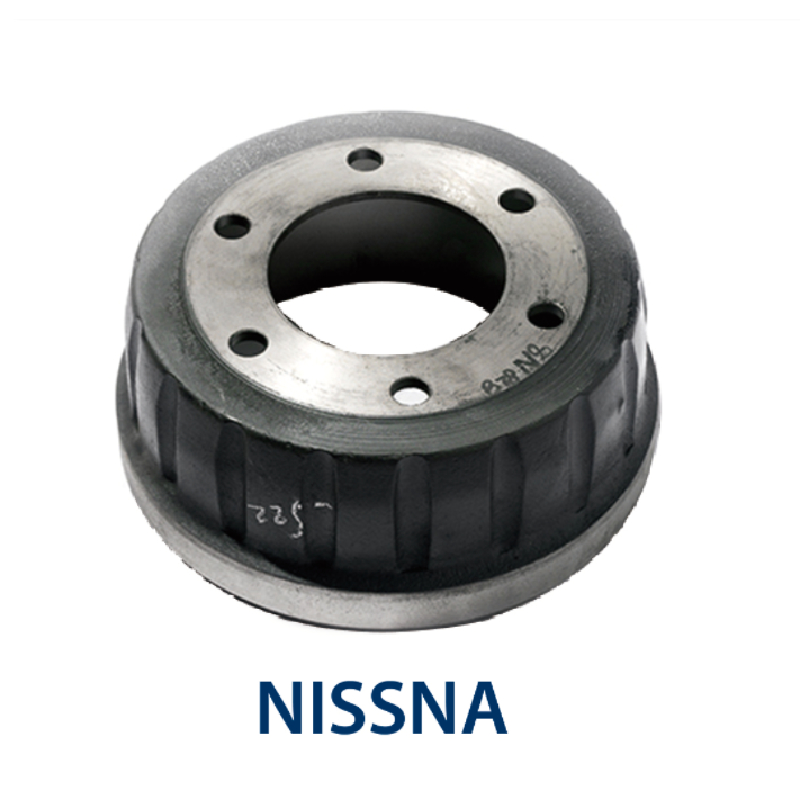12 月 . 03, 2024 18:53 Back to list
brake drum failure analysis
Brake Drum Failure Analysis Understanding Causes and Solutions
Brake systems are paramount in ensuring the safety and efficiency of vehicles. Among the essential components of these systems, brake drums play a vital role, especially in vehicles equipped with drum brakes. However, like any mechanical component, brake drums can suffer from failures which, if not understood and addressed, can lead to catastrophic outcomes. This article explores the causes of brake drum failure, the implications of such failures, and the possible solutions to mitigate the risks.
Understanding Brake Drums
Brake drums are cylindrical components that house the brake shoes and are integral to the braking process. When the driver engages the brakes, friction material on the brake shoes presses against the interior surface of the drum, generating the necessary force to slow down or stop the vehicle. This friction, however, generates significant heat, which can lead to various forms of mechanical failure if not properly managed.
Common Causes of Brake Drum Failure
1. Overheating One of the primary causes of brake drum failure is overheating. When brakes are used excessively (e.g., during heavy braking), the friction generates heat, which can cause the drum to warp or develop cracks. This situation is often exacerbated in mountainous driving or when towing heavy loads.
2. Material Defects Manufacturing defects can compromise the structural integrity of brake drums. Inadequate material quality, improper heat treatment, or poor casting can lead to weaknesses that precipitate failure under normal operating conditions.
3. Corrosion Brake drums are exposed to various environmental conditions, including moisture and road salts, which can lead to corrosion over time. This corrosion reduces the effective surface area for braking and can lead to pitting or flaking, further weakening the drum.
4. Improper Installation Improper installation of brake drums can lead to uneven wear and premature failure. It is crucial that the drums are mounted correctly and that all components—such as brake shoes and springs—are in good condition.
5. Excessive Wear Like all components, brake drums have a lifespan. Continuous use over time without proper maintenance can lead to excessive wear, which may compromise their effectiveness and lead to failure.
brake drum failure analysis

Implications of Brake Drum Failure
The failure of a brake drum can have serious consequences. In the best-case scenario, it can lead to decreased braking efficiency, resulting in longer stopping distances and increased risk of accidents. In severe cases, complete brake failure may occur, endangering the lives of the driver, passengers, and others on the road. Furthermore, the failure of one component can have a cascading effect on other system components, leading to more extensive and costly repairs.
Solutions to Prevent Brake Drum Failure
1. Regular Maintenance Regular inspections of the brake system, including the brake drums, should be an integral part of any vehicle’s maintenance regimen. Checking for signs of overheating, wear, and corrosion can help identify potential issues before they lead to failure.
2. Quality Components Using high-quality brake drums manufactured by reputable suppliers can greatly reduce the risk of defects. It is advisable to avoid substandard or used components that may not meet safety standards.
3. Proper Installation Ensuring that all brake components are installed correctly by a trained professional can prevent many issues. This includes the proper adjustment of brake shoes and the use of appropriate torque specifications when mounting drums.
4. Heat Management To mitigate overheating, drivers should avoid excessive braking whenever possible. Techniques such as engine braking can reduce reliance on the brake system, thereby prolonging the life of the brake drums.
5. Corrosion Protection Regular cleaning and applying protective coatings to brake components can help reduce the risk of corrosion. Keeping brakes free of dirt and debris will also enhance their performance and longevity.
Conclusion
Brake drum failure poses a serious risk to vehicle safety and highlights the importance of regular maintenance and proper component selection. By understanding the common causes of brake drum failure and implementing proactive measures, drivers can ensure more reliable and efficient braking performance, ultimately enhancing road safety. Regular check-ups and adherence to maintenance schedules are invaluable strategies in mitigating the risks associated with brake drum failures.
-
Brake Drum for Kamaz Trucks Durable OEM Replacement & High Performance
NewsMay.30,2025
-
Brake Drum Man High-Quality Drum Brake & Shoe Solutions
NewsMay.30,2025
-
High-Performance Brake Drum for Kamaz Trucks Durable Drum Brake Components
NewsMay.29,2025
-
Brake Drum Man High-Quality Drum Brake Drums & Brake Shoes
NewsMay.29,2025
-
Brake Drum MAZ High-Performance & Durable Replacement Parts
NewsMay.29,2025
-
heavy truck brake drums
NewsMar.07,2025
